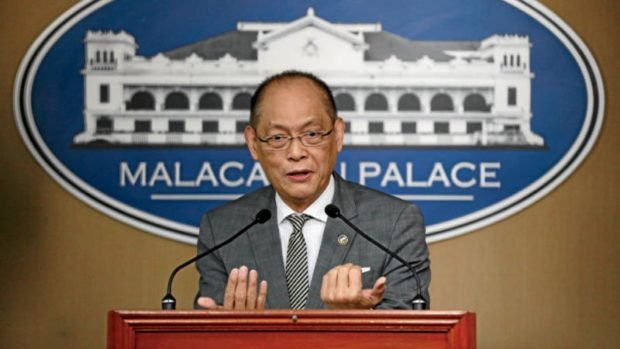Think tank: ‘Politicized’ Diokno appointment to BSP a ‘risk’ to PH governance

Budget Secretary Benjamin E. Diokno. (File photo from the Philippine Daily Inquirer)
MANILA, Philippines – President Rodrigo Duterte’s “politicized” appointment of Budget Secretary Benjamin Diokno as new Bangko Sentral ng Pilipinas (BSP) Governor was seen by UK-based think tank Capital Economics as a “risk” to governance in the country.
In a March 5 report titled “Philippines: chances of rate cuts strengthening,” Capital Economics Asia economist Alex Holmes said “the surprise pick of Diokno as governor may raise questions about the bank’s independence in future.”
In the same report, Capital Economics said that as headline inflation further slowed to a one-year low of 3.8 percent in February and returned within the government’s 2-4 percent target range, “the BSP will be in a position to start cutting rates as soon as next quarter.”
Amid a higher-than-expected rate of increase in prices of basic commodities last year, which averaged a 10-year high of 5.2 percent, the BSP hiked key interest rates by a total of 175 basis points in 2018, making it more expensive to borrow money.
“The chances of cuts have been further strengthened by the news that former Budget Secretary Benjamin Diokno will take over as governor of the BSP, following the death of Governor [Nestor] Espenilla last month. Mr. Diokno’s relaxed attitude to fiscal deficits as budget secretary suggests he will be dovish as governor. We have been expecting a rate cut at BSP’s meeting in May for a while, and this news makes that more likely,” Capital Economics said.
Article continues after this advertisementDiokno chaired the Cabinet-level, interagency Development Budget Coordination Committee (DBCC), which had programmed a wider budget deficit equivalent to 3.2 percent of gross domestic product (GDP) this year mainly to finance the Duterte administration’s ambitious infrastructure development program dubbed “Build, Build, Build.”
Article continues after this advertisementUnder “Build, Build, Build,” the government would roll out 75 “game-changing” projects, with around half expected to be completed during President Duterte’s term, to usher in “the golden age of infrastructure” by 2022.
Also, Capital Economics said that “Diokno’s appointment came as a surprise—previous governors have tended to come from the ranks of deputy bank governors who have served at the bank for long periods of time.”
“The move raises questions about the politicization of the BSP. While Diokno himself is not seen as politically aligned—he is a technocrat with a long history as a civil servant under several administrations at the DBM—his appointment is being seen as a move to free up the position of Budget Secretary for a Duterte ally,” Capital Economics said.
“There is a risk that markets ultimately become less confident in the BSP’s independence and willingness to tackle inflation and financial risks. This echoes events in India, where the appointment of a new central bank governor who immediately cut rates, led to a fall in short-term rates but a rise in rates at the long end of the curve,” it said.
“It is still too early to say whether Governor Diokno will be able to maintain the BSP’s credibility as a well-run and independent central bank. But the news does add to the catalogue of evidence that Duterte is willing to break norms and politicize political institutions. We continue to see the risk of a further slide backwards in governance in the Philippines, which would weigh on investment and growth,” it added. /kga